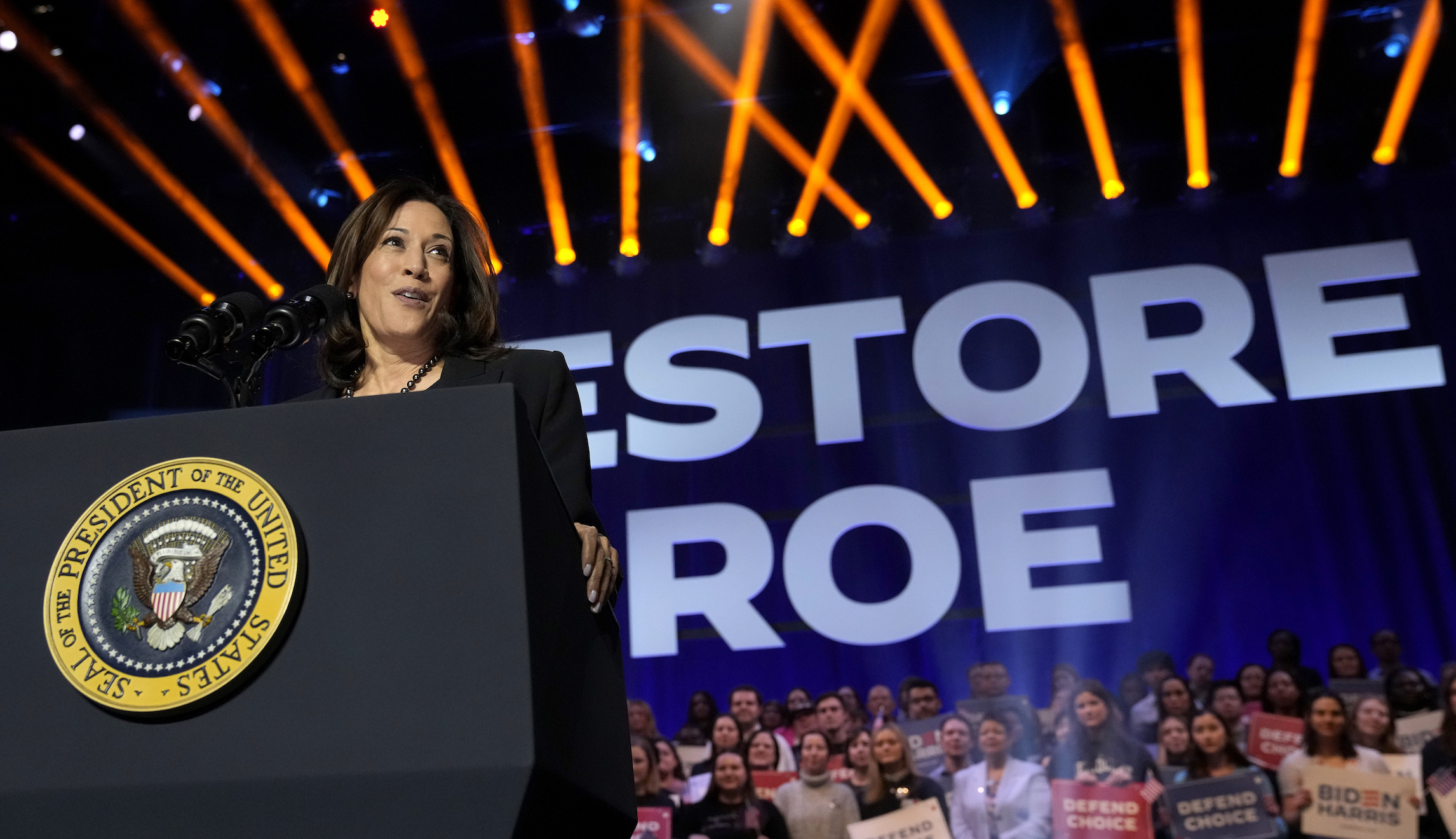

In politics, two things can be true at once. For example, Vice President Kamala Harris can be historically unpopular and also a great campaigner for her party.
Harris, the first female, black, and Asian American vice president, has struggled to connect with the voting public, and her approval rating sits at just 36.2%, a figure lagging 4 points below that of her unpopular boss, President Joe Biden.
Simultaneously, she’s a particularly effective vehicle for reaching the Democratic base, minority voters, and women, all of whom will be crucial if the Biden-Harris team is to win a second term in the White House.
“It’s a vivid illustration of polarization in American politics,” said Brad Bannon, a Democratic Party strategist, of the Harris phenomenon. “The vice president is very unpopular in Trump circles or with Trump voters, but she is very popular among core Democratic voters. So she’s perfectly suited to the traditional vice president’s role, which is to activate the base.”
While a 36% approval rate likely indicates it’s not just Trump supporters who aren’t impressed with Harris, the Democratic Party‘s faith in her as a campaigner can be seen in her frequent outings to Georgia, a state Biden won by just 11,779 votes, or 0.23%, making it the most closely contested state in the nation four years ago.
Harris visited Atlanta on Jan. 9 for a discussion on voting rights, which Democrats allege is one of many rights under attack from the GOP.
“There is, I believe, a full-on intent to attack fundamental freedoms and rights in our country — not only the freedom to have access to the ballot, but the freedom for people to make decisions about their own body, for women to make decisions about their own body, the freedom of people to love who they love openly and with pride, the freedom of people to be safe from gun violence,” she said.
It was Harris’s 10th trip to the Peach State since taking office, which Bannon says is no coincidence.
“Her appeal is not just to African American voters, it’s to women in the Atlanta suburbs who are very concerned about the abortion issue,” Bannon said. “If you look at the polls, suburban women, especially young suburban women, are very concerned about the possibility of a national abortion ban.”
Atlanta and its vast suburbs filled with centrist voters were seen as key to Biden and Harris winning the once ruby-red state, and those same people will be needed if it’s going to stay blue this year.
At the same time, Bannon acknowledged that Democrats will have to use Harris “selectively” to appeal to core Democratic voters owing to her sagging approval numbers.
Andra Gillespie, a political science professor at Emory University in Atlanta, says Harris will constitute a major part of the message alongside Biden.
“The vice presidential nominee becomes the chief surrogate of the president, and a representative of the administration,” Gillespie said. “[In Georgia,] Harris is being deployed to a place where black turnout will be essential. They’re deploying her in the hopes that she can drive up African American turnout, and then they’re also deploying her in places where she can hopefully earn some media that will help to advance the overall Democratic message.”
Yet the mere fact that Harris is campaigning for a second Biden term could be seen as a failure on her part. Biden promised on the 2020 campaign trail to be “a bridge” to the next generation of Democratic leaders. But because Harris remains as vice president but has proven so unpopular, the 81-year-old incumbent remains on the stage today, hoping to stay in office until age 86.
Democrats have other, younger surrogates, most notably 56-year-old Gov. Gavin Newsom (D-CA), who has actively courted a national profile and even visited South Carolina ahead of the state’s Democratic primary.
At 59, Harris is also a lot younger than Biden, and it would be awkward for the party if Newsom, a white man, supplanted her as the Democratic standard-bearer this year.
Still, Harris’s campaign strengths became particularly acute starting in June 2022, when the Supreme Court overturned Roe v. Wade, sending the issue of abortion back to the states and the democratic process.
The vice president has gone on three separate nationwide abortion-rights speaking tours since that date, the first of which was widely seen as helping Democrats outperform expectations in the midterm elections. Her latest is titled the “Fight for Reproductive Freedoms” tour, part of an effort to reclaim the word freedom as a Democratic Party principle.
The Democratic National Committee is going on offense with its abortion messaging this year, taking advantage of a fragmented approach to the issue on the part of Republicans.
While both remaining Republican presidential candidates, former President Donald Trump and former South Carolina Gov. Nikki Haley, have taken moderate approaches to abortion saying states should be empowered to decide, that isn’t stopping the DNC from aggressively pushing the issue.
The Biden reelection campaign on Monday highlighted a New York Times opinion piece saying Trump favored a “backdoor abortion ban,” and has accused Haley of backing a national ban as well.
Haley has tried to flip that issue back on Democrats, saying the media should be asking at how many weeks Biden and Harris would allow abortions to happen.
CLICK HERE TO READ MORE FROM THE WASHINGTON EXAMINER
But Harris and her party clearly feel they have the upper hand in the messaging war, meaning the vice president will be seen frequently on the campaign trail in spite of her low approval ratings, and will keep taking Republicans to task on core progressive principles such as abortion access, gun control, transgender rights, and voting.
“There is so much right now that is challenging us as a country,” she said in Atlanta on Jan. 9. “But when I look at the leaders at this table, I know that we are prepared to meet these challenges and to do so in a way that we will work together — continue to work together to build coalitions and to remind people of what is at stake and, most of all, to remind them that on the issue of voting, their vote does matter.”







